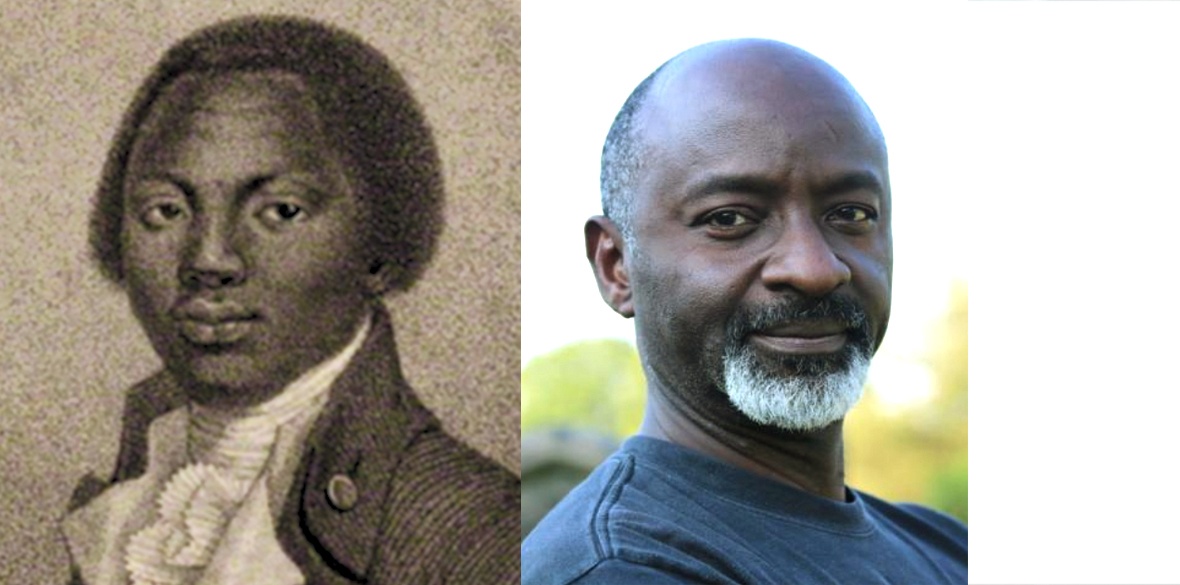This is the last article you can read this month
You can read more article this month
You can read more articles this month
Sorry your limit is up for this month
Reset on:
Please help support the Morning Star by subscribing here
ON TUESDAY afternoon (May 24), a new BBC radio docu-drama, made by myself and fellow producer Deborah Hobson, will chart the life and times of a remarkable but forgotten black British hero, who died 225 years ago. The Amazing Life of Olaudah Equiano is being broadcast at 4pm on BBC Radio 4.
Sadly, programmes like this made by black independent production companies like ours, The-Latest Ltd, are rare. When I asked a Radio 4 executive commissioner if she knew of any others working with her history department she said a forlorn “no.”
It’s as if, in British broadcasting, the game-changing Black Lives Matter movement, spearheaded by radical youth demanding change, had never happened.
An outstanding autobiography, The Interesting Narrative of the Life of Olaudah Equiano, or Gustavus Vassa, the African, was published in 1789, and became a bestseller in the author’s own lifetime. It ran to nine editions and attracted support from many notables. Among the aristocrats Equiano managed to charm to sponsor its publication was Prince Frederick, Duke of York.
He also got prominent figures to do national newspaper book reviews, including leading women’s rights campaigner Mary Wollstonecraft.
By any standards, the life of Olaudah Equiano was incredible. An Igbo born in the kingdom of Benin, in 1745, in what is now Nigeria, Equiano was enslaved as a child. He was transported to Barbados, where he stayed for just a couple of weeks, and then to the British North American colony of Virginia. He also spent time on the Caribbean island of Montserrat.
Equiano, played in our programme by Tayo Aluko, was bought as a boy by Royal Navy lieutenant Michael Henry Pascal, who forcibly renamed him Gustavus Vassa, after a reforming Swedish king in a play the officer liked. Equiano became Pascal’s unpaid servant.
Equiano was taught to read, write and do maths on British naval ships he was on where classes for crew were common. Later, Robert King, an American Quaker and merchant, bought Equiano and encouraged his slave to earn money by working as a trader with him.
Equiano became a gauger, a weights and measures person who inspected bulk goods aboard ships that were subject to tax. That meant he was too valuable to his master to be put to work as simply a plantation slave.
In 1766, Equiano did something that was very unusual at the time when he bought his freedom from King for an equivalent of £10,000 in today’s money — the same amount his master had paid for him. It is significant King was a Quaker because they were in the forefront of the abolition movement.
As a sailor, Equiano had a life of travel and adventure. But it was as a free man living in London in the 1780s that he found fame when he became involved in the abolitionist movement.
Most British school children are taught white MP William Wilberforce was the most significant campaigner for the abolition of slavery. But Equiano proves that is not the full story. Outside parliament, Equiano, working with people like Thomas Clarkson, who briefed Wilberforce, were arguably just as important.
Equiano’s book, the first of its kind written by a former slave, played a huge role by shocking British society with its vivid description of the horrors of the Atlantic Ocean Middle Passage when human cargo from Africa were transported in appalling conditions to the Americas and Caribbean.
Some academics put the number of slaves at 15 million over 400 years — more than a million of them dying at sea.
Equiano died in 1797, 10 years before parliament outlawed the British slave trade. It was almost 30 years later that slavery itself was abolished in British territories. There are some places in the world where it still exists today.
The Amazing Life of Olaudah Equiano will be shown on Tuesday May 24 at 4pm on BBC Radio 4.











